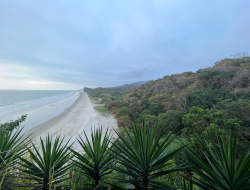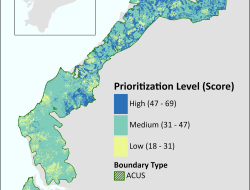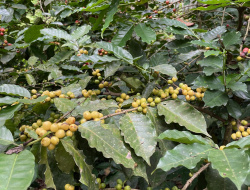
Supporting Forest Restoration and Sustainable Livelihoods in Coastal Ecuador
The tropical dry forests of coastal Ecuador are a critical source of biodiversity and ecosystem services but are threatened by deforestation and land use changes. There are current efforts to protect biodiversity and local livelihoods, such as the creation of the Area of Conservation and Sustainable Use (Área de Conservación y Uso Sostenible, “ACUS”) in Manabí Province. However, within the ACUS there remains a need to prioritize areas for restoration and to better assist, inform, and motivate transitions to sustainable livelihoods through eco-entrepreneurship, such as agroforestry and ecotourism.
Working with the Ceiba Foundation for Tropical Conservation, we produced four sets of informed deliverables that provide multidisciplinary solutions to these challenges:
- A geospatial restoration prioritization map based on multicriteria decision analysis of fourteen weighted variables and incorporating both existing data layers and field-based ground truthing
- Analysis of literature and interviews on the key motivators and challenges faced by eco-entrepreneurs in the ACUS, and recommendations of how to best support them, including support of a locally-owned certification and limited investment ecotourism
- Assessment of the ecological and socioeconomic benefits of coffee agroforestry, based on literature, local field surveys, and interviews with farmers, so that these benefits can be shared and promoted
- Development of a set of criteria to assess ecotourism farm tours and provide actionable recommendations for tour improvement
Together, these deliverables and recommendations will inform the Ceiba Foundation’s ongoing work in Manabí to support forest restoration and sustainable livelihoods, as well as inform the larger theory and practice of conservation in tropical dry forest contexts.
Antonio Morsette, Barbara Nainiger, Jared Mandelbaum, Luke Allen, Sally Phipps, Ylexia Padilla
Read the full project report
This 16-month, multidisciplinary project assessed the challenges and opportunities of the conservation of a highly-threatened native forest ecosystem in coastal Ecuador. Through geospatial data analysis of landscape-scale forest connectivity, ecological field surveys of local sustainable farming systems, and qualitative research of sustainable livelihood practices, our team developed a holistic evaluation of critical responses to forest degradation in the region.
Geospatial Analysis: Informational Resources
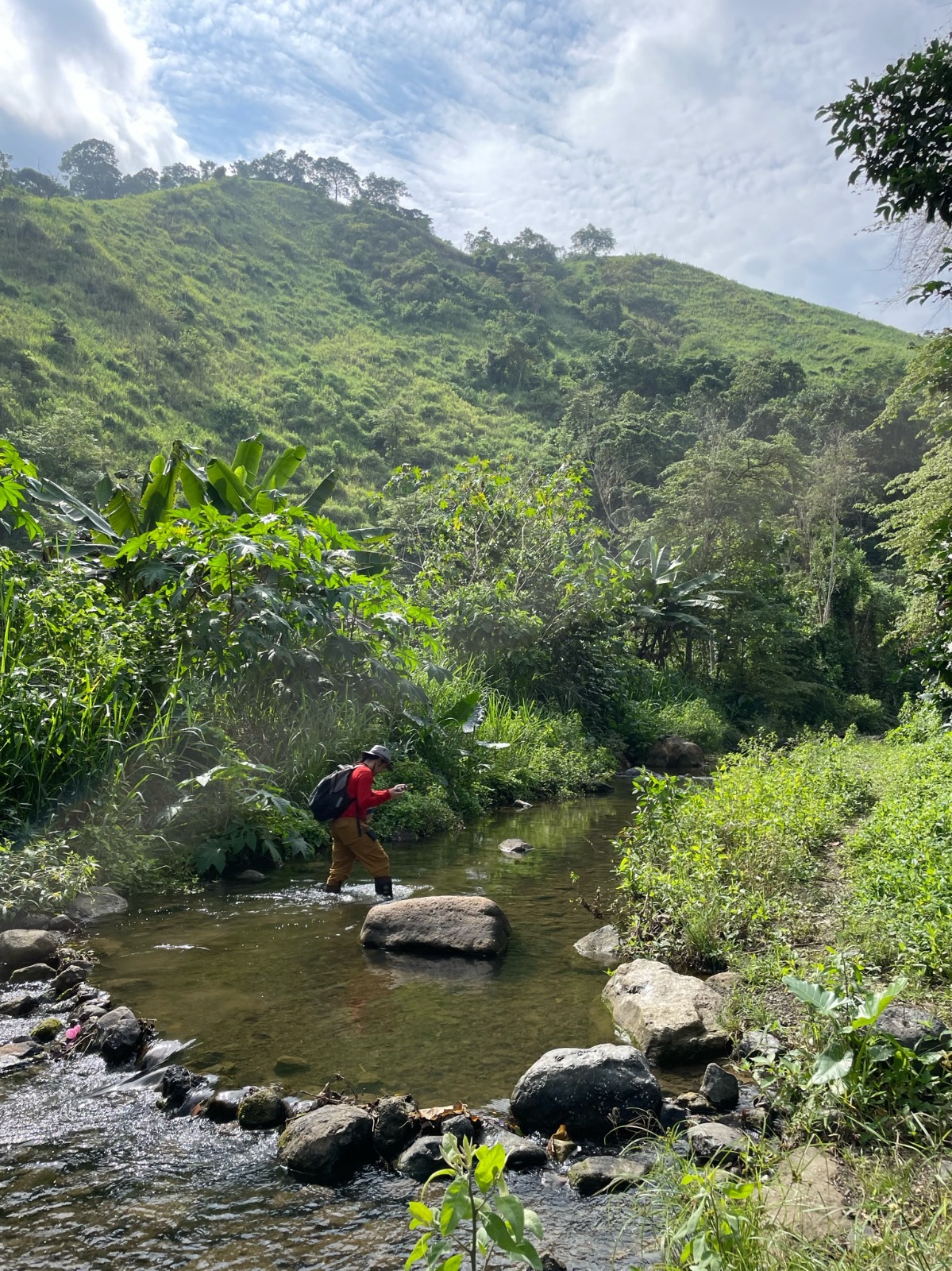
The following represents some of the tools and resources we developed during our research and analysis. These tools and resources are aimed to meet the critical need for an informed and spatially based prioritization tool within the ACUS. Using a Geographical Information Systems (GIS) based approach we provide:
- Prioritization Map that highlights prioritization areas for restoration and reforestation within the ACUS,
- Python Script that helps in generating a prioritization score for possible restoration and reforestation within the ACUS,
- Prioritization Map Flowchart that represents the applied methods and research design for the development of the Prioritization Map
- Standard Operating Procedures for Ecological Field Data Collection, and
- Prioritization Map Development Process for the development process for each spatial variable used in our Prioritization Map.
Geospatial Inputs
Eco-entrepreneurship in the ACUS region: what is the potential and what is missing?
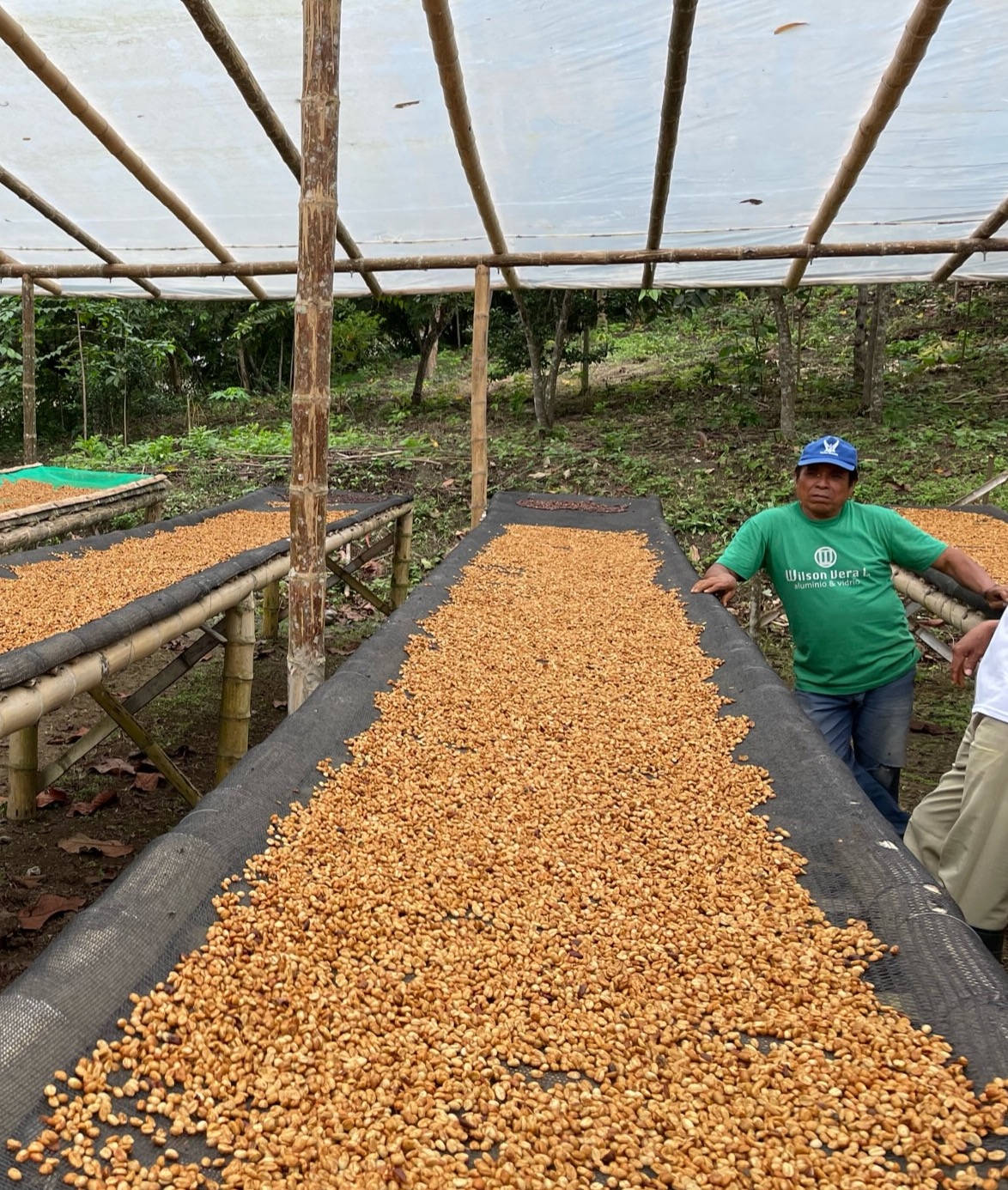
For smallholder farmers or landowners for whom preserving or conserving the natural environment is a key value, eco-entrepreneurship represents an opportunity for individuals to utilize the market economy in ways that align with their values, and to opt out where there is a value misalignment. We aimed to assess regionally-specific opportunities for, and barriers to, effective eco-entrepreneurship efforts in Manabí province in order to better understand the support that potential and active eco-entrepreneurs require. In order to make this assessment, we reviewed the literature, gathered information about Manabí, and conducted on-site interviews and focus groups to inform our recommendations to the Ceiba Foundation.
“All of us are feeling, observing, that there is a problem. From the beginning of the rainy season, there was basically no water. And little things, flowering times, fewer types of birds coming around, there are changes that [farmers] notice.”
Assessing Coffee Agroforestry: Research & Findings
To assess agroforestry's benefits to farming communities and the wider ecosystem we reviewed the literature on Latin American tropical agroforestry systems, conducted field surveys to collect quantitative biodiversity data and qualitative data from farmer stakeholders. Our field study compared the presence of key species and pollinators on smallholder shade coffee farms in the study area to a large patch of remnant tropical dry forest within a protected reserve and to conventional monoculture farms. Qualitative analysis used informational interviews and focus groups with agroforestry practitioners.
Ecotourism Case Study: ASOPROCOFFEE Farm Tours

Ecotourism can provide a sustainable livelihood for people living in biodiverse areas, but eco-entrepreneurs often face difficulties in efficiently and effectively improving their operations due to regional and local variations in context, lack of information exchange, and lack of shared assessment frameworks. We addressed this gap by developing systematic Farm Tour Assessment Criteria to assess ecotourism operations on small agroforestry farms. We then applied this approach to an in-depth case study of a multi-farm cooperative in Manabí called ASOPROCOFFEE, and we provide strategic recommendations for tour improvements for each farm in the case study.
Ecotourism Outcomes

Antonio Morsette (KiEwSis) received his MS from SEAS in Geospatial Data Sciences, specializing in Environmental Informatics. He is an enrolled member of the Chippewa Cree Tribe of Rocky Boy’s Indian Reservation, located in Central Montana. He hopes to use the knowledge he obtained at SEAS to collaborate with indigenous communities to map their most sacred sources of knowledge – knowledge that has been used to maintain their local environments for millennia. He wants them to feel secure knowing that their knowledge is protected and readily accessible to their community members for generations to come.

Barbara received her MS from SEAS in Geospatial Data Sciences. Her research interests include combining social and ecological factors in geospatial analyses and using creative geospatial methods to solve environmental problems related to climate change, landscape fragmentation, and habitat suitability. Barbara hopes to use her SEAS degree to become a GIS analyst/scientist with a government agency or non-profit organization.

Jared Mandelbaum holds an MS from SEAS in Environmental Justice & Policy and an MPP from the Ford School of Public Policy. His main academic and professional interests lie at the intersection of environmental justice and climate policy, specifically working to center equity issues in climate adaptation policy both at the domestic and international levels. Prior to his graduate studies, Jared received his BA from Hamilton College and worked in outdoor education and education technology.

Luke Allen holds an MS from SEAS in Environmental Justice and Sustainability and Development. His interests include the intersection of human rights and agroecology, climate policy, and urban climate adaptation. Prior to his graduate studies, Luke spent five years with the Rights and Resources Initiative, an NGO working on scaling recognition of collective land rights. He is originally from Iowa and received his BA from Macalester College in Minnesota.

Sally Phipps holds an MS from SEAS in Behavior, Education, and Communication and Ecosystem Science and Management, in addition to bachelor's degrees in cultural anthropology and linguistics. Her academic and professional interests are the applications of culturally-informed behavioral science to the biodiversity crisis and ecological sustainability. Prior to obtaining her Master's degree from the University of Michigan, Sally worked in tourism and the non-profit sectors in Southeast Asia and East Africa.
Ylexia Padilla holds an MS from SEAS in Ecosystem Science & Management and Environmental Justice. Ylexia's interests align at the intersection of ecology and social justice to bridge the gap between science and community empowerment. She hopes to continue to study how climate change and land-use impact biodiversity, communities and ecosystems. Her broader interests include climate adaptation and mitigation, sustainable agriculture, conservation ecology, and environmental justice.

The Ceiba Foundation for Tropical Conservation, Project Client
Ceiba connects people and nature, saving tropical species and habitats while helping communities improve their lives and livelihoods.

Sheila Schueller, Project Advisor
Lecturer & Academic Program Specialist at the University of Michigan's School for Environment and Sustainability


